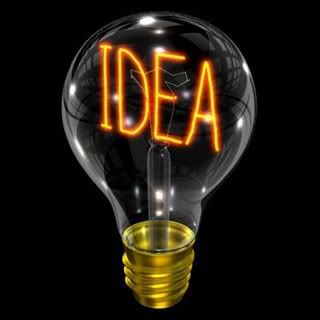
President Obama slowly and carefully walks the American public through how the process about using more efficient lighting would actually make us save energy. Crazy I know, much more fun watching Congress make a hash of things: (my bold)
WASHINGTON – Aiming to keep the focus on climate change legislation, President Barack Obama put a plug in for administration efforts to make lamps and lighting equipment use less energy.From the White House, President Obama:
"I know light bulbs may not seem sexy, but this simple action holds enormous promise because 7 percent of all the energy consumed in America is used to light our homes and businesses," the president said, standing alongside Energy Secretary Steven Chu at the White House.
Obama said the new efficiency standards he was announcing for lamps would result in substantial savings between 2012 and 2042, saving consumers up to 4 billion annually, conserving enough energy to power every U.S. home for 10 months, reducing emissions equal to the amount produced by 166 cars a year, and eliminating the need for as many as 14 coal-fired power plants.
The president also said he was speeding the delivery of $346 million in economic stimulus money to help improve energy efficiency in new and existing commercial buildings.
So today, we're announcing additional actions to promote energy efficiency across America; actions that will create jobs in the short run and save money and reduce dangerous emissions in the long run.
The first step we're taking sets new efficiency standards on fluorescent and incandescent lighting. Now I know light bulbs may not seem sexy, but this simple action holds enormous promise because 7 percent of all the energy consumed in America is used to light our homes and our businesses. Between 2012 and 2042, these new standards will save consumers up to $4 billion a year, conserve enough electricity to power every home in America for 10 months, reduce emissions equal to the amount produced by 166 million cars each year, and eliminate the need for as many as 14 coal-fired power plants.
And by the way, we're going to start here at the White House. Secretary Chu has already started to take a look at our light bulbs, and we're going to see what we need to replace them with energy-efficient light bulbs.
And if we want to make our economy run more efficiently, we've also got to make our homes and businesses run more efficiently. And that's why we're also speeding up a $346 million investment under the Recovery Act to expand and accelerate the development, deployment, and use of energy-efficient technologies in residential and commercial buildings, which consume almost 40 percent of the energy we use and contribute to almost 40 percent of the carbon pollution we produce.
We're talking about technologies that are available right now or will soon be available -- from lighting to windows, heating to cooling, smart sensors and controls. By adopting these technologies in our homes and businesses, we can make our buildings up to 80 percent more energy efficient -- or with additions like solar panels on the roof or geothermal power from underground, even transform them into zero-energy buildings that actually produce as much energy as they consume.
Now, progress like this might seem far-fetched. But the fact is we're not lacking for ideas and innovation. All we lack are the smart policies and the political will to help us put our ingenuity to work. And when we put aside the posturing and the politics; when we put aside attacks that are based less on evidence than on ideology; then a simple choice emerges.
We can remain the world's leading importer of oil, or we can become the world's leading exporter of clean energy. We can allow climate change to wreak unnatural havoc, or we can create jobs utilizing low-carbon technologies to prevent its worst effects. We can cede the race for the 21st century, or we can embrace the reality that our competitors already have: The nation that leads the world in creating a new clean energy economy will be the nation that leads the 21st century global economy.
No comments:
Post a Comment